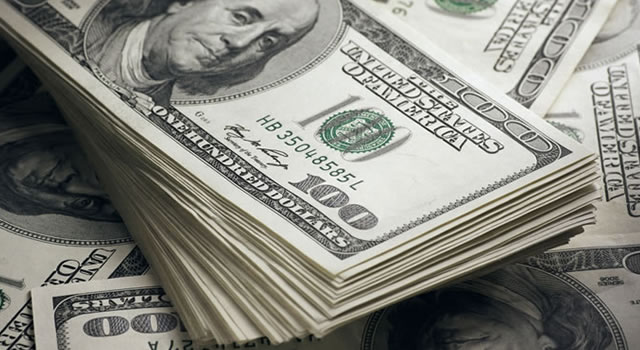Business
Nigeria’s capital importation up by 594% in Q1

The total capital importation into Nigeria in the first quarter of 2018 rose for the forth consecutive quarter since the second quarter of 2017 with portfolio investment accounting for over 72% of the total capital imported.
This is contained in a report on “Nigerian Capital Importation” released by the National Bureau of Statistics (NBS) on Friday.
According to the report, the total capital imported in the quarter stood at $6.303.63 billion, representing a year on year (YoY) increase of 594.03% and a 17.11% growth over the figure reported in the previous quarter.
The Bureau stated that the increase in capital inflow in Q1 2018 was mainly driven by Portfolio Investment which grew from $3.48 billion in the previous quarter to $4.57 billion, accounting for 72.42% of the total Capital Importation during the quarter.
Capital Importation is divided into three main investment types: Foreign Direct Investments (FDIs), Portfolio Investment and Other Investments, each comprising of various sub-categories.
“Since 2017 Q2, Portfolio Investment has been expanding faster than the other two categories, remaining the largest component of capital imported in Q1, 2018 at 35% of total capital imported,” the report read.
A breakdown of the Portfolio Investment showed that the total value of Portfolio Investment grew by 1,355.66% compared to $314 million in Q1, 2017 and 31.27% growth compared to the $3.48 billion recorded in Q4, 2017.
The Foreign Direct Investment (FDI) accounted for 3.91% of the total Capital Importation into the country while Other Investments accounted for 23.6% in the quarter under review.
In the first quarter, FDI stood at $246.62 million indicating a 34.88% drop from $378 million recorded in the previous quarter, but rose by 16.67% from a year earlier at $211 million.
The report noted that the Foreign Direct Investment inflow into the country was still weak when compared to the Portfolio and Other Investments.
Read also: NIGERIA: Federal, States, LGs pocket N1.9tn in Q1, highest in 3yrs
The Equity Investment, which is a sub-category under FDI contributed $246.61 million or 99% of the FDI during the quarter while other Capital under FDI contributed less than 0.001%.
Meanwhile, the report further noted that the increased growth in Portfolio Investment was mainly due to the increase in Money Market Instruments, maintaining an unbroken quarterly growth rate of of 60.3% in Q3, 2017, 203% in Q4, 2017 and 62% in Q1, 2018, recorded $3.53 billion in the first quarter, this represents 77.2% of the total Portfolio Investments in the quarter.
Other Investments, dominated by $1.27 billion Loans, declined by 2.29% to $1.49 billion in the first quarter of 2018 but grew by 289.25% in the corresponding quarter in 2017. Other claims recorded $223.59 million while Total Credits and Currency Deposits had no inflow in the quarter.
The Banking sector led other sectors with $18.7% of total capital inflow, recording $1.18 billion overseas investment inflow to Nigeria. Abuja, with $3.54 billion worth of foreign capital inflow, overtook Lagos to top the list of capital importation into Nigerian states.
The United Kingdom sustained its leading role in capital investment in Nigeria in the first quarter of 2018, with $2.25 billion capital investment in Nigeria, accounting for about 35.73% of the country’s total capital inflow in the same quarter.
The United States trailed with $1.26 billion representing 19.99% of the total quarterly capital importation, South Africa and Ghana followed with $493.22 million and $380.14 million worth of capital flow respectively. While Turkey ($130,000), Kenya ($120,000), Normal ($120,000), Bermuda ($90,000) and Israel ($10,000) have the least capital inflow into the country.
By Oluwasegun Olakoyenikan…
RipplesNigeria… without borders, without fears
Click here to join the Ripples Nigeria WhatsApp group for latest updates.
Join the conversation
Support Ripples Nigeria, hold up solutions journalism
Balanced, fearless journalism driven by data comes at huge financial costs.
As a media platform, we hold leadership accountable and will not trade the right to press freedom and free speech for a piece of cake.
If you like what we do, and are ready to uphold solutions journalism, kindly donate to the Ripples Nigeria cause.
Your support would help to ensure that citizens and institutions continue to have free access to credible and reliable information for societal development.
























